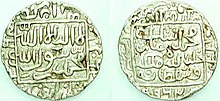Rohingya people
| Flag of the Rohingya Nation | |
| Regions with significant populations | |
|---|---|
| Burma (Arakan), Bangladesh, Saudi Arabia, Pakistan,Thailand, Malaysia , | |
| Languages | |
| Rohingya language | |
| Religion | |
| Islam |
The Rohingya which is known as Bengali in Burma and they are from Bangladesh Country.
Language

The Rohingya language is the modern written language of the Rohingya people of Arakan (Rakhine) State of Burma (Myanmar). It is linguistically similar to the Chittagonian language spoken in the southernmost part of Bangladesh bordering Burma. Rohingya scholars have successfully written the Rohingya language in different scripts such as Arabic, Hanafi, Urdu, Roman and Burmese, where Hanifi is a newly developed alphabet derived from Arabic with the addition of four characters from Latin and Burmese.
More recently, a Roman script orthography has been developed, using all 26 English letters A to Z and two additional Latin letters Ç (for retroflex R) and Ñ (for nasal sound). To accurately represent Rohingya phonology, it also uses five accented vowels (áéíóú). It has been recognized by ISO with ISO 639-3 "rhg" code.[1]
History
There was no Muslim community in Arakan before the state was absorbed into British India. Some Bengali retinues of King Saw Mun (r.1430- 1433) who regained the throne with the military aid from Sultanate of Bengal were allowed to settled down in the suburban area of Mrauk-U, the new royal capital. They were the earliest Muslim settlers who do not seem to count many. There had been a minor Muslim presence mostly made up of Muslim mercenaries, itinerant merchants from Persia and Golkonda and some Bengali captives of the Arakanese and Portuguese pirates sold into slavery. The descendants of those people can be found in the vicinity of Royal capital Mrauk-U and Kyauktaw Township. [R.B. Smart: 1957: 87] Professing the Islamic faith, they have lived in Arakan since the early seventeenth century, where their way of life pertains to their lands of origin. Speaking Arkanese dialect, they never claim themselves being Rohingyas. They want to be called themselves Arakanese Muslims although they are very much different from Arakanese (also known as Rakhine people). It is obvious that the term “Rohingya” was created in 1950s by the educated Chittagonian descendants from Mayu Frontier area (present day Buthidaung and Maungdaw Districts) and that it cannot be found in any historical source materials in any language till then. The creators of that term might be of the second or third generations of the Bengali immigrants from the Chittagong District in modern Bangladesh. R.B. Smart wrote: “Since 1879, immigration has taken place on a much larger scale and the descendants of the slaves are resident, for the most part in the Kyauktaw and Myohaung [Mrauk-U] townships. Maungdaw township has been overrun by Chittagonian immigrants. Buthidaung is not far behind and new arrivals will be found in almost every part of the district [R.B. Smart: 1957: 87].
Religion
Religion is particularly important to the Rohingya people, who are predominantly Muslim. Mosques and religious schools occupy most villages. Traditionally, men pray in congregation and women pray at home.
Human rights violations
The term Rohingya was coined by Islamic extremists during 1950s to islamize Burma during its turmoil after independence. Since the colonial time of Burma, there were many attempts by Islamists to secede Burma especially in the western part which had been flooded with illegal immigration of Muslims. There were numerous incidents in which native Buddhists Rakhine villages and people were destroyed.[citation needed]
See also
- Persecution of Muslims in Burma
- Islam in Burma
- Human rights in Burma
- Burmese Indians
- Muslims of Manipur
- Rohingya massacre
Notes
References
- "Rohingya". Banglapedia, Asiatic Society of Bangladesh. Retrieved June 2005.
{{cite web}}: Check date values in:|accessdate=(help) - "A Short History of Arakan". Mohammad Ashraful Alam. Retrieved June 2005.
{{cite web}}: Check date values in:|accessdate=(help) - "Myanmar, The Rohingya Minority: Fundamental Rights Denied". Amnesty International. Retrieved August 2005.
{{cite web}}: Check date values in:|accessdate=(help) - Amnesty International (English)
- The Muslim “Rohingya” of Burma by Martin Smith 1995 Arakan Rohingya National Organisation
- The Burmanization of Myanmar's Muslims, the acculturation of the Muslims in Burma including Arakan, Jean A. Berlie, White Lotus Press editor, Bangkok, Thailand, published in 2008. ISBN 9744801263, 9789744801265.
